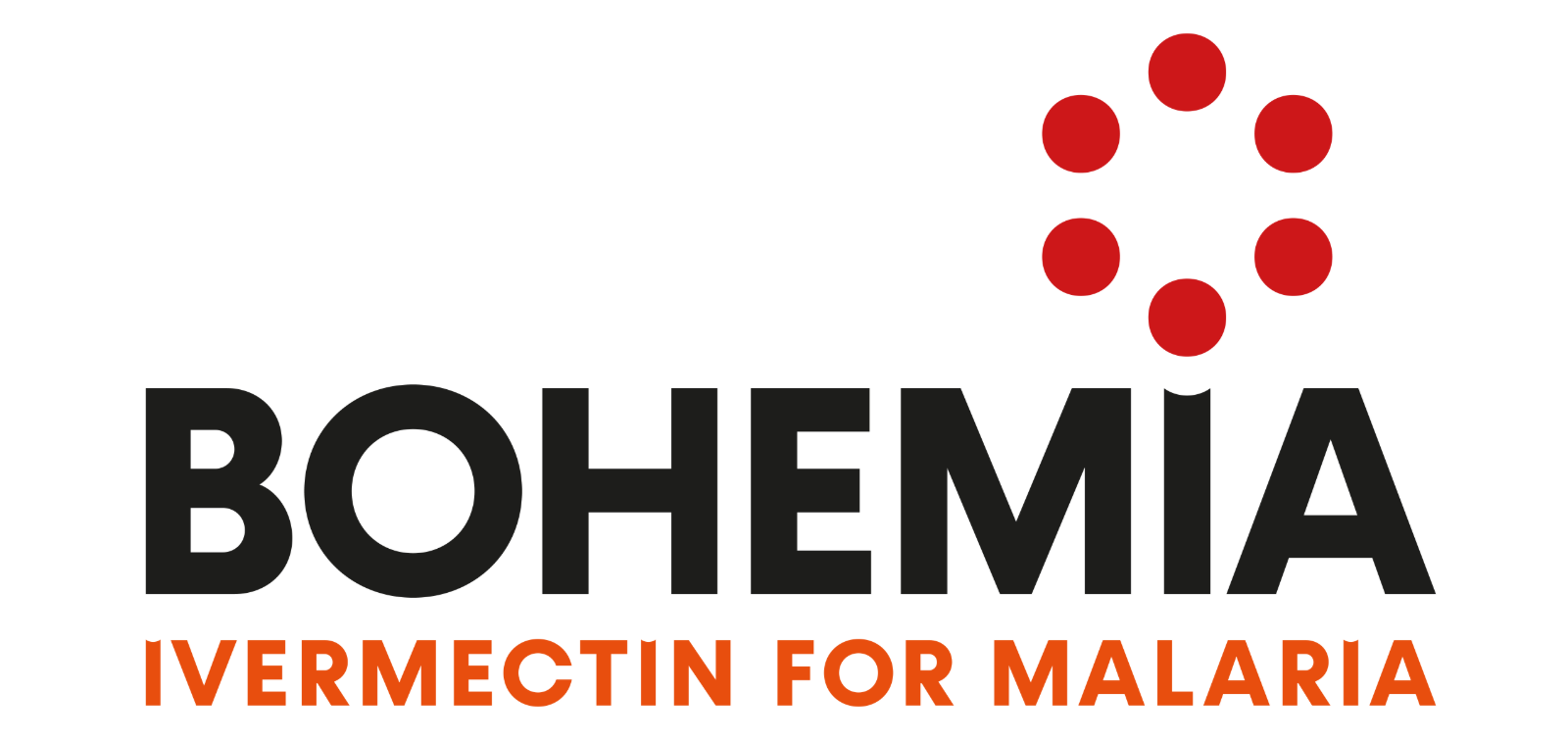BOHEMIA
Broad One Health Endectocide-based Malaria Intervention in Africa

- Durada
- Feb 2019 - Feb 2024
- Coordinador
- Regina Rabinovich
- Finançadors
- UNITAID
- Pàgina web
- http://bohemiaconsortium.org
The world is not on track to achieve the goals proposed by WHO in the Global Technical Strategy for Malaria 2016-2030 (GTS), and currently available tools are unlikely to suffice. Vector control, our most effective strategy, is now doubly threatened by widespread insecticide resistance and residual transmission caused by mosquito behavioral adaptations that allow them to elude home-based vector control tools such as treated bed nets and indoor residual spraying.
Ivermectin is an antiparasitic drug distributed to more than 2.5 billion people over the last 30 years in mass drug administration campaigns to directly treat two Neglected Tropical Diseases (NTDs). More recently, it has been noted that ivermectin can also increase the mortality of mosquitoes that feed on treated humans or animals during a time period that can be up to 28 days, depending on the dose.
Thus, Mass Drug Administration (MDA) of ivermectin to humans and/or livestock holds potential to complement the malaria toolbox by tackling residual transmission and help the malaria community get back on track to achieve the GTS goals.
Objectives
BOHEMIA will evaluate the MDA of ivermectin to humans and/or livestock in two African countries - Mozambique and Kenya - during the malaria season, and will collect data on the epidemiological impact to support normative guidance, global and national policy change.
Should evidence be supportive, engagement with WHO and other key stakeholders will support the conditions for a policy recommendation, and subsequent national adoption.
BOHEMIA combines evidence generation and stakeholder engagement to enable the path for policy and implementation of ivermectin as a new vector control tool complementary to standard tools (treated bed nets and indoor residual spraying).
The Consortium
The BOHEMIAconsortium is led by ISGlobal and includes:
- Centro de Investigaçao em Saúde de Manhiça
- Ifakara Health Institute
- University Hospital Bern
- University of Oxford
- Virginia Tech
The MDA is being implemented in Mozambique by the Centro de Investigação em Saúde de Manhiça (CISM), and in Kenya by the Kenya Medical Research Institute in collaboration with the KEMRI | Wellcome Trust research program.
Total funding
25.3 U$ million (awarded by Unitaid)
Our Team
Principal Investigator
-
 Regina Rabinovich Directora de la Iniciativa per a l'Eliminació de la Malària
Regina Rabinovich Directora de la Iniciativa per a l'Eliminació de la Malària
Co-Principal Investigator
-
 CARLOS CHACCOUR Assistant Research Professor. Coinvestigador principal i director científic del projecte BOHEMIA. Malària, Virus emergents
CARLOS CHACCOUR Assistant Research Professor. Coinvestigador principal i director científic del projecte BOHEMIA. Malària, Virus emergents
ISGlobal team
-
 Paula Ruiz-Castillo Postdoctoral Fellow
Paula Ruiz-Castillo Postdoctoral Fellow -
Patricia Nicolás Bellot
-
 Mary Mael Project Manager
Mary Mael Project Manager -
 Beatriz Fiestas Coordinadora de Comunicació. Campus Clínic
Beatriz Fiestas Coordinadora de Comunicació. Campus Clínic -
Sònia Tomàs Project Manager, BOHEMIA Outreach Coordinator
-
 Vincent Bouvaist Financial Manager
Vincent Bouvaist Financial Manager
Altres projectes
Veure projectes passatsNHEPACHA
Noves Eines per al Diagnòstic i l'Avaluació del Pacient amb Malaltia de Chagas
RTS,S Vaccine Immunology Study
Study of immune correlates of protection against malaria after vaccination with RTS,S/AS01E: a comprehensive immunological arm of a Phase III double-blind, randomized, controlled multi-center trial
Euroleish.net
Control of Leishmaniasis. From bench to bedside and community
GREPIMER
Grup de recerca en patología importada i malaties emergents i re-emergents
TESEO
Nuevos regímenes de quimioterapia y biomarcadores para la enfermedad de Chagas
ASINTMAL
Unravelling Disease Tolerance and Host Resistance in Afebrile 'P. falciparum' Infections: a Prospective Study in Mozambican Adults
ADAM
Administración masiva y focal de fármacos antimaláricos para avanzar hacia la eliminación de la malaria en Mozambique: acelerando la implementación de programas y políticas
MULTIPLY
MULTIple doses of IPTi Proposal: a Lifesaving high Yield intervention
Science4Pandemics
Citizens engagement digital platform for collective intelligence in pandemics
HIDDENVIVAX
Novel organ-on-a-chip technology to study extracellular vesicles-mediated cryptic infections in Plasmodium vivax malaria
Subclinical Infections in Children and Long Term Health Effects
Infection acquisition in early life and health outcomes in childhood - MARATO TV3
Herramienta innovadora de detección de enfermedades y vacunación a población inmigrante en riesgo en España
Project Code: PI21/00651
Impacto de las coinfecciones en el balance de respuestas de anticuerpos y linfocitos T helper a antígenos diana de inmunidad natural y vacunal frente a patógenos humanos prominentes
Project Code: PI20/00866
EpiGen
Building Scalable Pathogen Genomic Epidemiology in Ethiopia
MalTransc
Transcriptional regulation of adaptation and developmental decisions in malaria parasites: from epigenetic variation to directed transcriptional responses
RESPONSE
Mechanisms of the transcriptional responses to changes in the environment in the malaria parasite Plasmodium falciparum
VivaxEVTalk
Extracellular Vesicles as Intercellular Communicators and Biomarkers of Cryptic Erythrocytic Infections in Plasmodium vivax malaria
VaMonoS
Unravelling the heterogoneity and function of monocytes in vaccination and immunity to malaria
CLIMSOCTRYPBOL
Insight on climate and social participatory research for integral management of vectorborne zoonosis caused by Trypanosoma cruzi and Leishmania spp. in the Bolivian Gran Chaco.
SexMal
Social affairs and sex in P. falciparum: implications for malaria elimination
MENA Migrant Health
Transforming data collection and surveillance to drive migrant health research, care and policy
MESA
L'Aliança Científica per a l'Eradicació de la Malària (MESA) té com a objectiu avançar en la ciència de l'eradicació de la malària.
GenMoz
P. falciparum genomic intelligence in Mozambique
SMART
Identifying Severe Malaria with a new Aptamer-based Rapid diagnostic Test
GlycoTargets
Noves teràpies antimalàriques dirigides contra les vies de glicosilació de 'Plasmodium falciparum'













